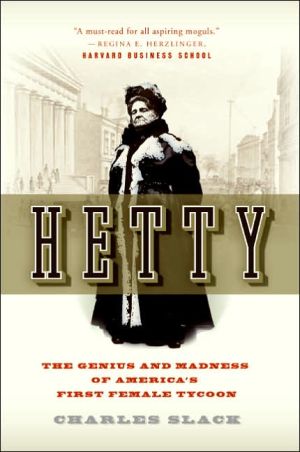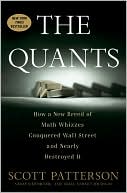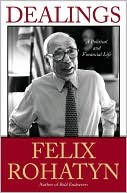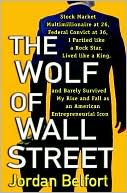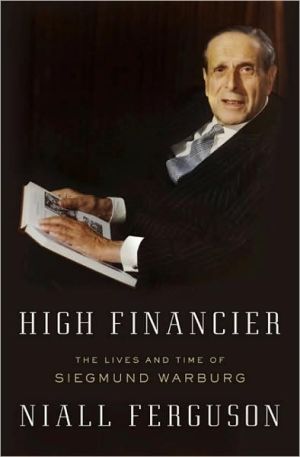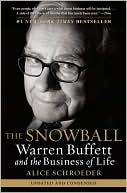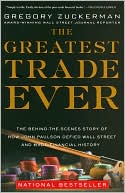Hetty: The Genius and Madness of America's First Female Tycoon
When J. P. Morgan called a meeting of New York's financial leaders after the stock market crash of 1907, Hetty Green was the only woman in the room. The Guinness Book of World Records memorialized her as the World's Greatest Miser, and, indeed, this unlikely robber baron — who parlayed a comfortable inheritance into a fortune that was worth about 1.6 billion in today's dollars — was frugal to a fault. But in an age when women weren't even allowed to vote, never mind concern themselves with...
Search in google:
When J. P. Morgan called a meeting of New York's financial leaders after the stock market crash of 1907, Hetty Green was the only woman in the room. The Guinness Book of World Records memorialized her as the World's Greatest Miser, and, indeed, this unlikely robber baron — who parlayed a comfortable inheritance into a fortune that was worth about 1.6 billion in today's dollars — was frugal to a fault. But in an age when women weren't even allowed to vote, never mind concern themselves with interest rates, she lived by her own rules. In Hetty, Charles Slack reexamines her life and legacy, giving us, at long last, a splendidly "nuanced portrait" (Newsweek) of one of the greatest — and most eccentric — financiers in American history.This P.S. edition features an extra 16 pages of insights into the book, including author interviews, recommended reading, and more. The New York Times - Constance Rosenblum In Hetty: The Genius and Madness of America's First Female Tycoon, Charles Slack, a journalist and historian, makes every effort to present an even-handed portrait. He even manages to tease out Hetty's softer side, not an easy task with regard to a woman the Guinness Book of World Records anointed the world's ''greatest miser.''
Hetty\ The Genius and Madness of America's First Female Tycoon \ \ By Slack, Charles \ Ecco\ ISBN: 006054256X \ \ \ Chapter One\ New Bedford\ A sleigh cut through the snowy streets of New Bedford, Massachusetts, during the early 1840s. People could not help but turn their heads as it passed. They all recognized the sleigh, the powerful black horse, and the man at the reins. Edward Mott Robinson was not a New Bedford native, but he had married into the richest whaling family in town. He had a dark, stern face with hawklike features. Black Hawk Robinson, they called him. He was known as a tough businessman, shrewd, unsentimental, thrifty, and cold. He spared little in the way of greetings to his fellow townspeople as the sleigh hurried along.\ Sitting next to him, all but obscured under the folds of a thick buffalo robe, sat a girl of nine or ten. The sharp air flushed her cheeks. Her eyes were blue and lively. Lost amid the dark, arrogant ensemble of man, horse, and sleigh, the little girl was happy. She inhaled the fresh winter air and the smell of tobacco on her father's clothes. For all his wealth, he did not smoke good cigars. They were cheap four-centers. When an acquaintance offered him a ten-cent cigar, he declined. If he learned to like a ten-cent cigar, the four-cent variety would no longer satisfy him. But the smell was indescribably sweet to the little girl. Hetty Howland Robinson wished these rides, with her father sitting close to her, could last forever.\ As the sleigh reached the lower portions of the city, near the waterfront, the aromas of winter air and tobacco were overwhelmed by something baser and more pungent. Whale oil, spilled and leaked a little at a time from untold thousands of casks, coated the piers that poked into the Acushnet River, the streets along the waterfront, the sidewalks, the steps of shops and factories. Under the summer sun the rotting oil gave off a funk that permeated everything. In winter the odor was more muted, perhaps, but it never went away. One backstreet leading to the wharves earned the name "Rose Alley" when some optimist planted rosebushes in a vain attempt to mask the smell left by wagons carrying casks of oil. But if the rancid smell offended delicate nostrils, the residents of New Bedford were savvy enough to recognize that whale oil smelled like money.\ Within a few blocks of the waterfront, blacksmiths made whaling irons and harpoons, rivets, and nails; coopers made casks; boatwrights fashioned sturdy whaleboats from local timber. The air rang with the clank of hammers on metal and the rip of saw blades through wood. Outfitters stocked dried apples, codfish, corn, tobacco, paint, canvas, and rum in quantities needed for voyages that often lasted three or four years. An equally furious and busy industry dedicated itself to converting oil and whalebone delivered by returning ships into lamp oil, watch oil, candles, hairpins, and corsets. Language in this part of town was coarse, direct, and loud. Robinson's voice could be heard above the din, shouting at dockworkers to speed up, to load and unload faster. Hetty loved to follow her father here, when he would permit. It was her favorite part of town.\ The headquarters of Isaac Howland Jr. and Company were in a three-story building at the foot of Union Street, next to the wharves. It was a serious, sturdy building of simple architecture, made of stone and brick. On the first floor was a store for outfitting the company's ships with supplies. On the third floor, artisans fashioned sails and rigging. But the second floor was the financial heart of the company -- the counting room. Here, Robinson and a small staff of managers and clerks tabulated profits and losses, expenses, insurance costs, and wages, and kept track of the ever-changing price per barrel of oil. Here, all of the blood, violence, romance, lore, and adventure of whaling on high and distant seas were reduced to a pure essence of dollars.\ Perhaps the only thing about Black Hawk Robinson that could be described as weak was his eyesight. And so from a young age Hetty read the financial news to her father, and to her maternal grandfather, Gideon Howland, a partner in the firm. She read shipping statistics, tariff news, currency debates, the latest on securities and investments, and trade news from New York. She absorbed everything. By the time she was fifteen, by her own reckoning, she knew more about finance than many financial men. Occasionally she would detect in her father's stern face something like approval, some faint signal, almost akin to forgiveness, for her double sin of having been born a girl instead of a boy, and for having been healthy and strong and full of life when her infant brother died. Looking back on her childhood many years later, Hetty would recall, "My father taught me never to owe anyone anything. Not even a kindness."\ Here, then, was New Bedford during the 1830s and '40s, when Hetty was a child. The first great oil fortunes in the United States were established not by Texans poking into the hardbaked earth, but by New England mariners roaming the seas in search of whales. The original whaling capital, the island of Nantucket, faded in the early i8oos when newer, larger ships outgrew the limitations of Nantucket's shallow harbor. The industry moved west to the mainland and New Bedford...\ Continues... \ \ \ \ Excerpted from Hetty by Slack, Charles Excerpted by permission.\ All rights reserved. No part of this excerpt may be reproduced or reprinted without permission in writing from the publisher.\ Excerpts are provided by Dial-A-Book Inc. solely for the personal use of visitors to this web site. \ \
\ Tucson Citizen"Fascinating."\ \ \ \ \ New York Post"A fascinating book."\ \ \ Forbes"A wonderfully detailed new biography."\ \ \ \ \ Richmond Times-Dispatch"[A] page-turning portrait of an important and complicated woman."\ \ \ \ \ Newsweek"[A] nuanced portrait."\ \ \ \ \ Constance RosenblumIn Hetty: The Genius and Madness of America's First Female Tycoon, Charles Slack, a journalist and historian, makes every effort to present an even-handed portrait. He even manages to tease out Hetty's softer side, not an easy task with regard to a woman the Guinness Book of World Records anointed the world's ''greatest miser.''\ — The New York Times\ \ \ \ \ Publishers WeeklyAt the time of her death, Hetty Green (1834-1916) was the wealthiest woman in America, having amassed a $100-million fortune. Perhaps unfairly, however, she is remembered primarily as a mean, litigious and compulsive tightwad who bought bags of broken cookies because they were cheap and who posed as a pauper so doctors would treat her free of charge. In his entertaining biography, Slack (Noble Obsession) tells how this "Wizard of Finance" built an empire of stocks, bonds, railroads, real estate and cash reserves-a considerable achievement for a woman of her time-by devoting every waking moment to making money according to simple principles: buy low, sell high and don't go to pieces in a panic. Stubborn and vindictive, Hetty exacted harsh revenge on her financial enemies, and popular opinion held that such a woman couldn't possibly be happy. But Slack demonstrates otherwise, arguing that Hetty was perfectly content and was merely living according to her own rules. Her children, though, may have been less at ease: Hetty's daughter, who long lived in Hetty's shadow, had the family mansion demolished after Hetty died, and her son made his mark as a big spender. Slack doesn't try to find a moral here; he just concentrates on telling a good story and telling it well. Photos not seen by PW. Agent, Andrew Blauner. (Nov.) Copyright 2004 Reed Business Information.\ \ \ \ \ Library JournalSlack (Blue Fairways) has written a lively and engaging portrait of the 19th century's Martha Stewart-Hetty Green, the irascible and ruthless female tycoon who took Wall Street by storm, rivaling the wealth of male counterparts Carnegie, Morgan, and Rockefeller. But unlike them, Green left no philanthropic legacy; posterity remembers her, if at all, as every inch the miserly, cunning calculator, hard of head and heart, manipulating her dying aunt Sylvia into bequeathing her fortunes to Hetty alone. Slack makes no bones about this, but he also offers something beneath the caricature-a woman driven by her father's dismissal, a gothically lonely childhood, and an implacable stubbornness and determination that was both a character strength and flaw. Although at times repetitious-Slack reminds us continually that Hetty trusted no one-this detailed account will no doubt delight readers of 19th-century financial history and anyone who likes a good story. Recommended for popular history collections.-Tania Barnes, Library Journal Copyright 2004 Reed Business Information.\ \ \ \ \ Kirkus ReviewsSlack (Nobel Obsession, 2002, etc.) paints an un-disparaging portrait of the woman best known, though little heard of today, as a mean old rich lady. Before Enron's and Tyco's overreaching malefactors, before Martha Stewart or Leona Helmsley, back in the Gilded Age of the fabled robber barons, Hetty Green (1834-1916) drew an outsized amount of public attention. Once a pretty Quaker heiress from New Bedford, she attained notoriety as "the Witch of Wall Street," in control of hundreds of millions invested in mines and mortgages, government and corporate bonds, railroads, and real estate. Green's business acumen and sharp practices were legendary, but Slack gives equal attention to her fabulous lack of people skills. From her youth, she was contemptuous, unkempt, and unclean. When a broker's collapse cost her $500,000, she seemed to declare war on the world, often resorting to extravagant commercial litigation and specious will contests, though she despised lawyers as much as anyone. Green had few friends other than the obliging president of Chemical Bank, where she was the largest depositor. She hung her bonnet and black reticule in Chemical's back offices, sometimes (to save the cost of lunch) bringing with her a bit of oatmeal to be warmed on a radiator. Parsimonious and tax-averse, she avoided New York's fabled "millionaire's row" on Fifth Avenue, moving from rooms in Brooklyn to flats in Hoboken. Slack describes Hetty's exacting relations with her feckless husband, her affable, outsized Texan son, her meek wisp of a daughter, and her little dog too. With the passing of the old lady's children, who left no heirs, the fabulous fortune swiftly dissipated. It's a cautionary tale too soonforgotten-Arthur Lewis's excellent The Day They Shook the Plum Tree is now four decades old-and Slack offers an exemplary retelling for a new generation. Instructive account of a cash-crazy financier whose wealth could never exceed her dreams of avarice. (8-page photo insert, not seen)Agent: Andrew Blauner\ \
